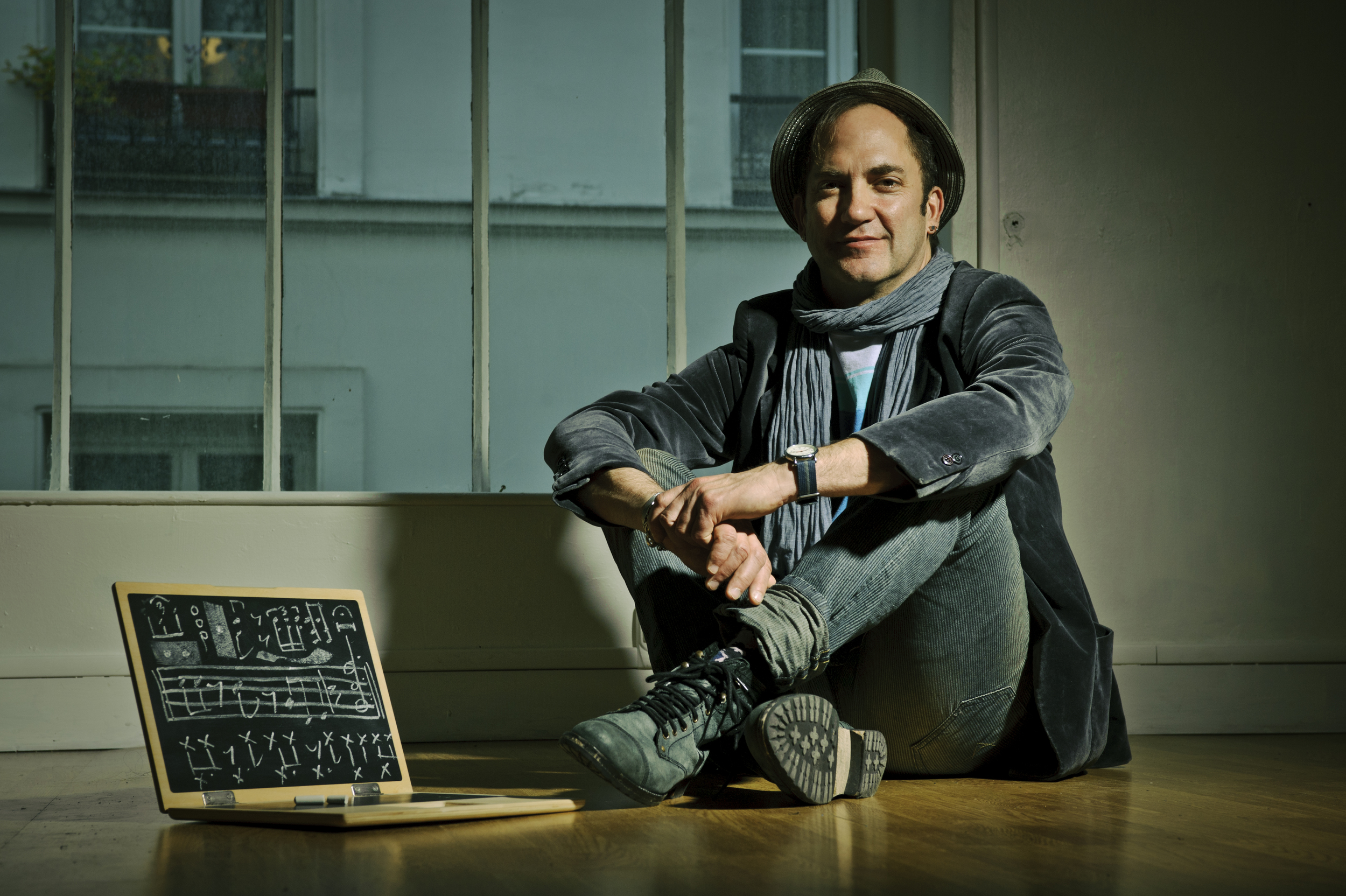

Shows
July 8 Brooklyn, NY Ix Cafe Peter Apfelbaum/Tiga Jean Baptiste Duo
July 23 Kingston, NY Handbell Studio Peter Apfelbaum conducts Creative Improvisers Orchestra in tribute to Karl Berger
July 30 Stanford, CA Stanford University Dafnis Prieto “Cantar” Project
September 2 Detroit, MI Detroit Jazz Festival Dafnis Prieto “Cantar” Project
September 9 Albuquerque, NM The Outpost Dafnis Prieto “Cantar” Project
September 10 Los Angeles, CA The Jazz Salon Dafnis Prieto “Cantar” Project
September 15 New York, NY Dizzy's @ Jazz at Lincoln Center Omar Sosa Quarteto Americanos
September 16 New York, NY Dizzy’s @ Jazz at Lincoln Center Omar Sosa Quarteto Americanos
September 17 New York, NY Dizzy’s @ Jazz at Lincoln Center Omar Sosa Quarteto Americanos
October 3 New York, NY Dizzy’s @ Jazz at Lincoln Center Steven Bernstein’s Millennial Territory Orchestra
October 4 New York, NY Dizzy’s @ Jazz at Lincoln Center Steven Bernstein’s Millennial Territory Orchestra
October 27 New York, NY Harlem Stage Dafnis Prieto “Cantar” Project
October 28 Boston, MA Berklee School of Music Performance Center Dafnis Prieto “Cantar” Project

News
World Premiere:
Peter will be premiering a new work for NYC-based Ensemble Ipse on December 19th at the DiMenna Center.
Online Masterclasses:
In early 2020, Peter taped a series of masterclasses for an online workshop series presented by Creative Music Studio, of which he has been an Artistic Director since 2016. To be launched later in 2021, the series also will feature masterclasses by fellow CMS directors Karl Berger, Ingrid Sertso, Billy Martin, Steven Bernstein, Fay Victor and Ken Filiano. Check www.creativemusic.org for details.
In the Studio:
Peter was recently back in the studio with longtime collaborator Dafnis Prieto, recording music for Prieto's new album featuring acclaimed Brazilian vocalist Luciana Souza. The recording, which lasted several days and took place at Brooklyn Recording, also features Martin Bejerano (piano) and Matt Brewer (bass) and was co-produced by Larry Klein and Eric Oberstein.
Here's a little clip of Peter on melodica, playing an improvised duet with Bejerano as an introduction to the song "Brisa".
In March, Peter spent the day recording at Orange Sound Studios in West Orange, NJ with Revelator, a collective project started in 2017 with three of his frequent collaborators over the last two decades: Legendary bassist/producer Bill Laswell, guitarist Will Bernard (Hieroglyphics Ensemble, Sparkler) and drummer Aaron Johnston (Brazilian Girls, Sparkler). The group plans to release tracks from this session later this year, with their debut album scheduled to be released in 2022.
The Backstory
Born in Berkeley, California in 1960, Peter Apfelbaum started playing drums at the age of three, taking up piano and saxophone in elementary school and forming his first band at age 11.
A product of the Berkeley Schools' pioneering Jazz Project, Apfelbaum began performing professionally while in his early teens and was a member of the award-winning Berkeley High Jazz Ensemble under the direction of Phil Hardymon. In 1977 - his senior year at Berkeley High - he formed the 17-piece Hieroglyphics Ensemble as a vehicle for composing and exploring non-traditional musical forms. The Ensemble was initially largely comprised of fellow BHS classmates, some of whom would later move to New York and achieve recognition in their own right. The band originally included pianist Benny Green, saxophonist Craig Handy and trumpeter Steven Bernstein and would later feature saxophonist Joshua Redman prior to his move to NY. The band released their self-produced debut album, Pillars, in 1979 and began to attract international attention for their unique mix of elements of world music with the aesthetic of the jazz avant-garde. Around this time Apfelbaum made his first sojourn to New York, where he worked with Carla Bley, David Amram and the late Eddie Jefferson. He toured Europe for the first time in the Fall of 1979 with Karl Berger's Woodstock Workshop Orchestra, an all-star band which included Lee Konitz, Oliver Lake, Don Cherry, Leroy Jenkins and Trilok Gurtu.
In 1981 Apfelbaum returned to the Bay Area and resumed rehearsing regularly with the Hieroglyphics Ensemble.
In the mid-80's he toured the U.S. with O.J. Ekemode and the Nigerian All-Stars (first on baritone saxophone, later on drums) and also worked regularly with Cuban percussionist Francisco Aguabella's band, as well as with local reggae and R&B bands. By 1988, the Hieroglyphics' performances had become more frequent, and in the fall of that year Apfelbaum was commissioned by the San Francisco Jazz Festival to write a suite for the band. The resulting "Notes From The Rosetta Stone" was premiered at the Palace Of Fine Arts and featured the legendary trumpeter Don Cherry as guest soloist. Cherry was so impressed with the band that he took up residence in San Francisco and adopted Apfelbaum and fellow Hieroglyphs Bo Freeman (bass) and Josh Jones (drums) as his Multikulti group, touring extensively in North America, Europe and Japan over the next several years. Cherry also continued to appear frequently as a guest with the Hieroglyphics, and featured the band (as well as two Apfelbaum compositions) on his album Multikulti (A&M, 1989).
The early 1990's were a particularly fruitful time for Apfelbaum and the Hieroglyphics Ensemble.
The Grateful Dead championed the band, inviting them to open several of their shows during this period, and Apfelbaum received the Dead's annual Rex Foundation Award for Creative Excellence in 1991. The band secured a record deal with Antilles/Island and released Signs Of Life in 1990 (which received a Grammy nomination for the composition "Candles and Stones") and Jodoji Brightness in 1992. The band travelled to Germany, appearing at the Leverkusen and Berlin festivals, and won the 1992 Down Beat Critics Poll award for Big Band, Talent Deserving Wider Recognition.
Apfelbaum put the 17-piece group on hold during the mid-90's, forming a sextet comprising Hieroglyphics musicians and acoustic bassist John Shifflett. The group recorded Luminous Charms (Gramavision/Ryko) in 1996 and became Apfelbaum's working unit for the next few years. He also toured with Jai Uttal's Pagan Love Orchestra and Ann Dyer's No Good Time Fairies during this period.
In 1998 Apfelbaum moved to Brooklyn, NY, where he soon formed a New York version of his Sextet, featuring Josh Roseman (trombone), Charles Burnham (violin), David Phelps (guitar), Patrice Blanchard (bass) and Dafnis Prieto (drums).
He also began touring as a duo with electronics pioneer/inventor Don Buchla, appearing at festivals in Italy, France, Iceland and Mexico in 1998-99. In the Summer of 1999 Apfelbaum returned to the Bay Area to reconvene the Hieroglyphics to perform "Yihat", a piece written for the group by Muhal Richard Abrams, at Stanford University.
Apfelbaum toured Europe with several NY-based groups over the next few years: Joe Bowie's Defunkt Big Band (1999), Steven Bernstein's Millennial Territory Orchestra (2000), Kamikaze Ground Crew (2000), and the Groove Collective (2001). In the Spring of 2002 he joined Phish frontman Trey Anastasio's band, with whom he would play four sold-out U.S. tours, appearing on the David Letterman Show and the Tonight Show, among others. Apfelbaum also began appearing with Brazilian percussionist Cyro Baptista's Beat The Donkey (with whom he travelled to Morocco in 2004) and was hired by the legendary singer/activist Harry Belafonte to arrange and compose music for his 2003 European tour.
In February of 2003 Apfelbaum formed the 11-piece New York Hieroglyphics, adding to the personnel of his New York Sextet a second guitarist, Viva De Concini, and four original Hieroglyphics members who had moved east:
Peck Allmond (trumpet, reeds), Tony Jones (tenor sax), Jessica Jones (alto and tenor sax) and Norbert Stachel (baritone and bass sax, flute). The band played two sold-out nights at NYC's Jazz Gallery, and other local gigs followed. Apfelbaum had recommitted himself to the idea of having a large group of like-minded musicians to write for and perform with, and in the Fall of 2004 the band went into the studio to record a new CD of Apfelbaum compositions. The resulting CD, It Is Written, was released on ACT Music in August 2005. The band toured Europe in the Spring of 2006 and performed at the 2006 Monterey Jazz Festival and High Sierra Music Festival, as well as at Freight & Salvage and other prominent West Coast venues.
2012 saw the birth of SPARKLER, the fulfillment of Apfelbaum's desire to create a band that would focus on heavy dance grooves and more song-oriented material. Featuring his goddaughter, Natalie Cressman (trombone/vocals) and longtime colleague Will Bernard (guitar), the 5-piece band played shows in NYC and California - making their festival debut at High Sierra - in 2013 before heading into the studio to record tracks for an upcoming album. To read more about SPARKLER, click here.
In addition to the New York Hieroglyphics and SPARKLER, Apfelbaum continues to perform regularly with the Dafnis Prieto Si o Si Quartet and Sextet, Steven Bernstein/Henry Butler and the Hot 9, Omar Sosa Afri-lectric Quartet and Sextet. He also often performs solo or in duet with percussionist Josh Jones. His music has been performed by the Kronos Quartet, the National Swedish Radio Orchestra of Stockholm, the Bay Area Jazz Composers Orchestra, Harry Belafonte, Kamikaze Ground Crew and the Trey Anastasio Band. Apfelbaum compositions that have been recorded by other artists include "Pillars" (Dave Ellis - In The Long Run, Monarch, 1998), "When I Close My Eyes" AKA "Theater Piece" (Ann Dyer - When I Close My Eyes, Sunnyside, 2003) and "Peter's Tune" (Peck Allmond - Kalimba Collage, SoniCulture, 2004). The Berkeley High Jazz Ensemble commissioned Apfelbaum to write a new piece for the award-winning band, which was premiered in March 2006 at Yoshi’s with Apfelbaum conducting. Apfelbaum has also worked with Cecil Taylor, Nana Vasconcelos, Charlie Hunter, Joseph Jarman, Bill Laswell, Steve Kimock, the Chicago Children's Choir, the Jazz Mandolin Project, Levon Helm and the late Jim Pepper.
"I feel that one thing I have in common with others in my generation, like Steven Bernstein's Sex Mob, Graham Haynes, Josh Roseman, Charlie Hunter, Will Bernard, and Medeski, Martin and Wood is that we see the dance music of our time (or "groove" music, as MMW calls it) as having potential for creative development." He also aligns himself with the "restructuralists" (Braxton's word), like Braxton himself, Henry Threadgill, Roscoe Mitchell, Steve Coleman, Dave Douglas, Karl Berger, Ed Wilkerson, Tim Berne, Doug Wieselman, Carla Bley, Warren Smith, Julius Hemphill, Leo Smith, Arvo Paart, Sam Rivers, Ron Miles, Oliver Lake, Gina Leishman, Pierre Dorge, Bob Moses, John Zorn, Anthony Davis and others who, in the aftermath of the explosion of musical structure in the sixties, are putting the pieces back together in different ways."
"At no point in the process of composing have I made a conscious decision to incorporate African elements or, for that matter, any other cultural or stylistic elements. I just write and build and adjust the shape of it all. My vocabulary reflects the fact that I started life as a drummer and was trained as a sub-teenager in jazz theory, blues, gospel music. As a teenager I was inundated with jazz, African and Latin music, was involved in group improvisation on a regular basis, listened to a lot of 20th century classical music, worked in R&B, reggae, blues, Latin, African, Jazz, Funk, Middle Eastern and Indian bands, and for as long as I can remember, have been fascinated by how sounds fit together."
At the threshold of the new millennium, Signs of Life appeared as one of the finest recordings since the jazz-rock revolution at the end of the 1960s by showing the potential of jazz to reinvent itself in a cogent, unified and original way. His [Apfelbaum's] music sounded like a peek into a multicultural world beyond our own that somehow made so much jazz of the 1970s, 1980s and 1990s sound dated. Perhaps more important, it revealed not only a compelling vision of jazz in the present, but with the onset of the millennium, what jazz might yet become.
—end of the final paragraph of the final page of The Essential Jazz Records, Vol. 2: Modernism to Postmodernism (p. 796). Mansell Publishing, London & New York, 2000.
Awards and Commissions
2007
Chamber Music America New Works and Presentation Award - "Aural Histories"
2002
Jazz Composers Alliance Julius Hemphill Composition Award - "Shotgun Bouquet"
2000
Donaueschingen Music Festival, Germany - "Shotgun Bouquet"
1991
Winner - Down Beat magazine Critics' Poll - Big Band Deserving Wider Recognition (Peter Apfelbaum & the Hieroglyphics Ensemble)
1991
Grammy nomination - "Candles and Stones"
1990
Rex Foundation Ralph J. Gleason Award for Creative Excellence
1990
Kronos Quartet - "Lanterns and Cathedrals"
1988
Bay Area Jazz Composers Orchestra - "Jodoji Brightness"
Workshops and Residencies
2013, 2014
Creative Music Studio, Woodstock, NY
2014
Vusi Mahlasela Foundation, Pretoria, South Africa
2013
Brandon University, Manitoba, Canada
2012
University of Iowa
2012
University of Northern Iowa
2012
Ecole de Musique, Fort-de-France, Martinique
2010, 2011
Steinmuhle, Marburg, Germany
2003, 2010
School for Improvised Music, NYC
1992, 1996, 2004, 2009
Dartmouth College
2008
Nijmegen Jazz Meeting, Netherlands
2006, 2007
New York University
1999-2002
Long Island University (Adjunct Professor)
1998
Stanford University
1990
Rhythm Foundation, University of Miami
















































































